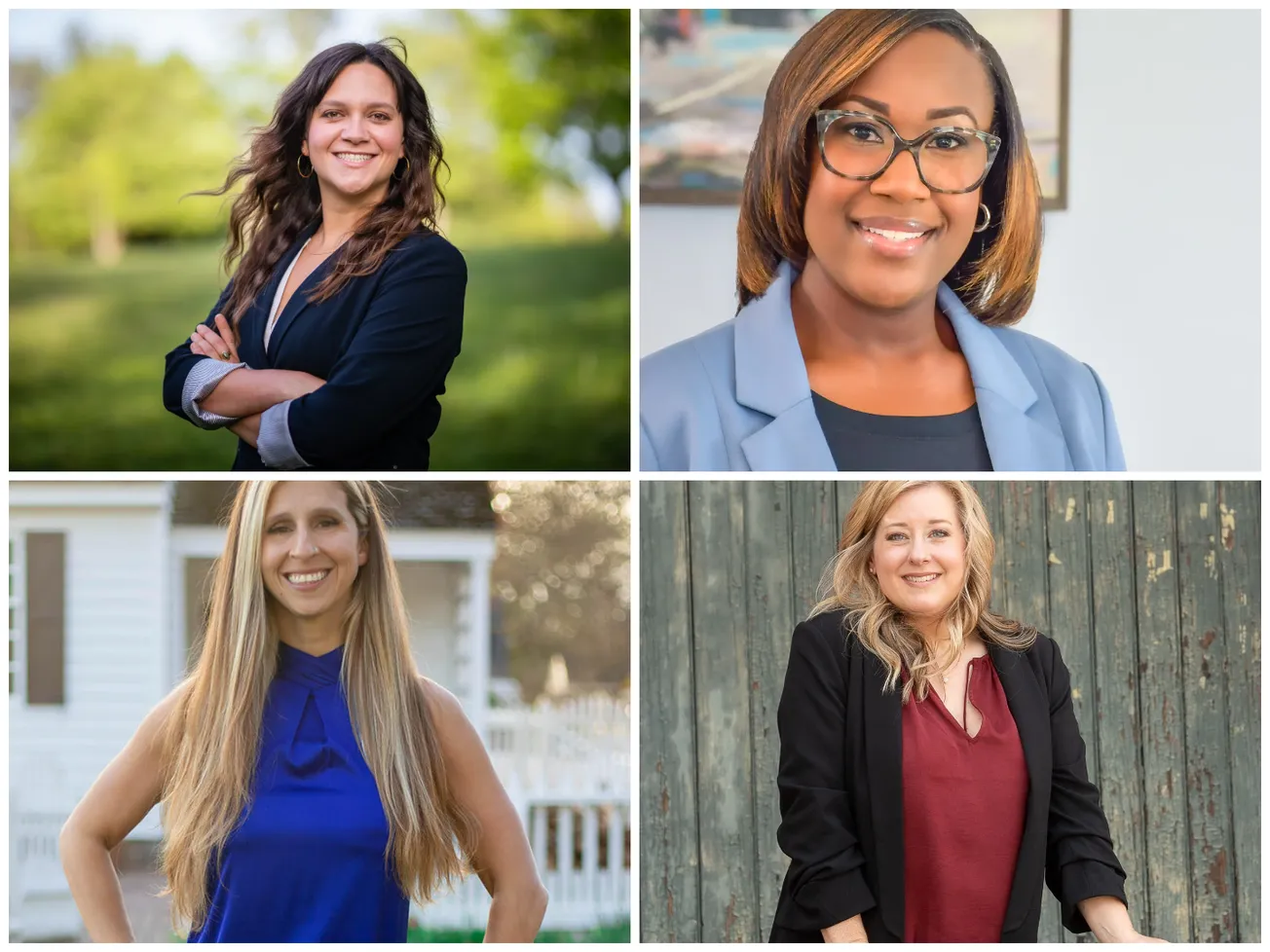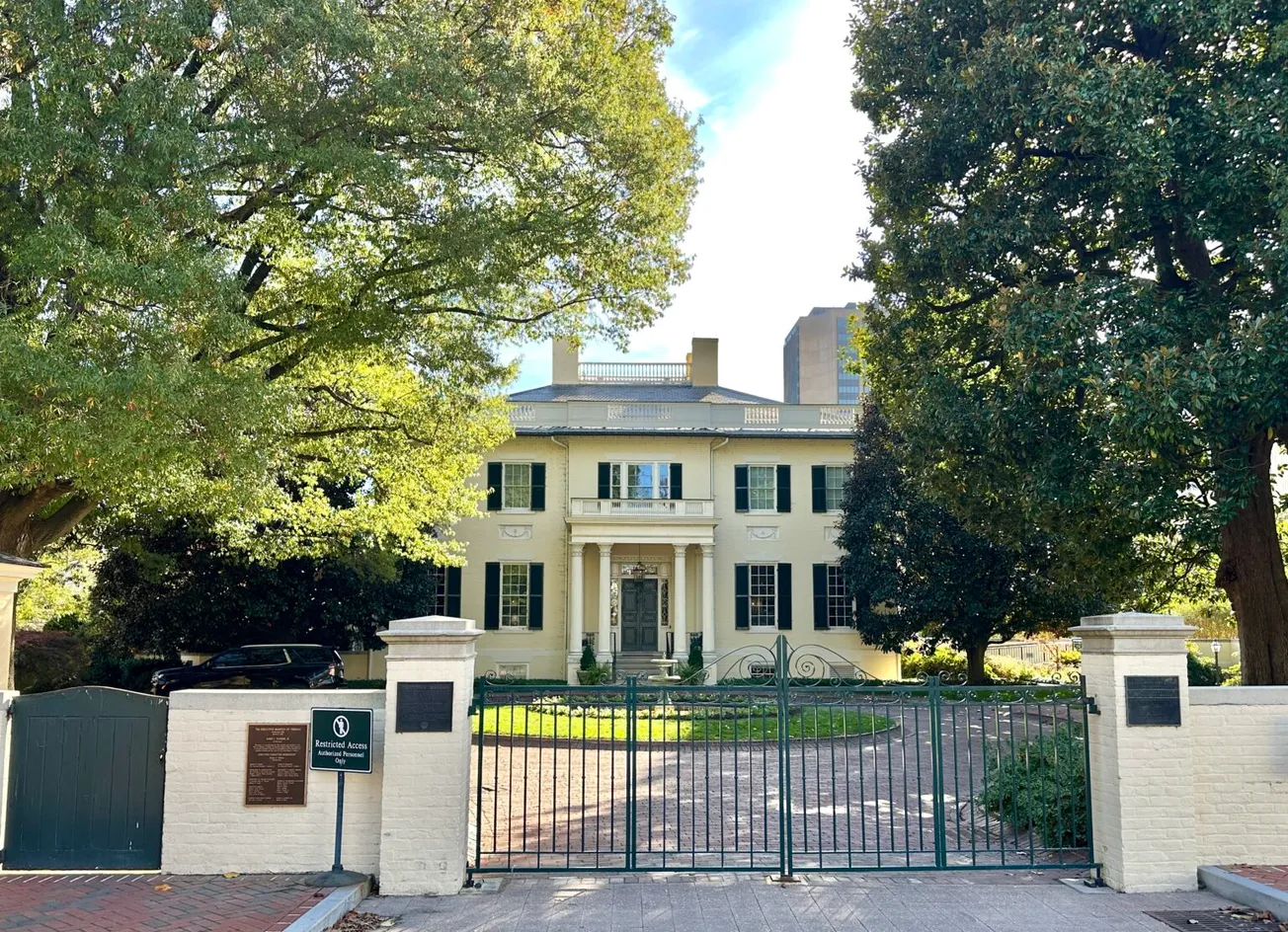Women candidates pack Virginia’s House of Delegates elections, tee up historic governor’s race

Table of Contents
With Virginia poised to elect its first woman governor later this year, the future of its state legislature is also female.
About 80 House of Delegates candidates are women, representing Democrats, Republicans and third party contenders. They are incumbents and challengers in primary or general elections vying for a role in the House, where all 100 seats are up for election. Of the 86 non-incumbents running statewide, 41 of those are women, according to the Virginia Public Access Project.
Those numbers could fluctuate over the next month or so as several districts have multi-person primaries and additional independent candidates have until June 17 to get on the ballot for November’s general elections.
With Republican Lt. Gov. Winsome Earle Sears and former congresswoman Abigail Spanberger battling for the governor’s mansion, the women seeking seats in the House can help boost their gubernatorial campaigns, too.
The top of the ticket
Virginia elections draw national scrutiny and lots of attention from political pundits, since its state elections follow close on the heels of presidential contests.
A year after President Donald Trump’s first election, Virginia’s 2017 House races ushered in a “Blue Wave” and laid the groundwork for a Democratic trifecta. Similarly, Virginia’s 2021 elections — a year after Democrat Joe Biden was sent to the White House — ignited a red takeover with Gov. Glenn Youngkin’s election and Republicans winning control in the House of Delegates for a term.
While presidential or congressional midterm elections nationwide typically see higher turnouts than other election years, Virginia’s unique timing of its state elections offers insight to pundits. But it also showcases which issues motivate Virginians specifically.
“These off-off year elections have lower turnout so it matters which side is motivated,” said political analyst Jessica Taylor with Cook Political Report.
Though most of the past two decades have seen Virginia elect a governor of the opposite party that won the White House the year before — and thus also benefit that party in House races — both Virginia’s gubernatorial candidates have top-down benefits to draw from.
“Earle-Sears’ biggest asset has been that Youngkin has remained popular and that the Virginia economy is doing well,” Taylor said.
She cautioned, however, that Trump’s policies could end up hurting her down the line while benefiting Spanberger. Sweeping federal job cuts stemming from the president and advisor Elon Musk’s Department of Government Efficiency have made a big impact in Virginia and could have lingering effects, she said.
A government shutdown in Washington D.C. in 2013 shortly before that year’s statehouse elections may have played a role in Democratic former Gov. Terry McAuliffe’s win, despite former President Barack Obama, a Democrat, winning the year before.
Although the DOGE cuts are unfolding earlier in the year, Taylor suspects they could still influence voters by November.
“Losing your job is more permanent than a furlough and a shutdown,” she said.
Another factor, particularly as so many women are running up and down the ticket this year, could be reproductive laws.
Women ‘need to be in the room’
Virginia’s status as the least restrictive Southern state when it comes to abortion access is one that Democrats are working to keep — and permanently protect.
The amendment needed to enshrine abortion access in the state constitution has only advanced on partisan lines, with Republican women lawmakers opposing it. Following the outcome of this year’s House elections, it will need to pass again before it can appear on statewide ballots for voters to weigh in.
“These are things that directly impact us, our daughters and our granddaughters,” said House District 71 Democratic nominee Jessica Anderson. “I think (women) absolutely need to be in the room when these decisions are being made.”
All Republican delegates and senators opposed the amendment, but their party first tried to tweak it. They’d sought to insert existing state code requiring parental consent for minors seeking abortions.
While Republican women incumbents opposed the measure, they said they had their reasons.
Del. Carrie Coyner, R-Chesterfield grew tearful while describing the Democratic version of the bill as “extreme” and said that it would “strip away” parental rights.
“How can we place such a heavy burden on young women across the commonwealth?” she asked her colleagues in January. “I cannot imagine my 15-year-old daughter having to face this decision without me.”
Republicans had sought to insert existing state and federal protections for newborns into the abortion amendment, as well. Democrats rejected the insertions and advanced the proposed constitutional amendment as they’d written it.
Coyner has sided with Democrats on some issues — like their constitutional amendment to restore voting rights to ex-felons who’ve served their time — but aligned with her party on the reproductive rights amendment. Three Democratic challengers — two men and a woman — will face off in a primary this June, and the victor will challenge Coyner in November.
Del. Kim Taylor clinched her last re-election by just 53 votes; her rematch with challenger Kimberly Pope Adams is among the most competitive districts for both parties this year.
Taylor attempted to stake out a nuanced stance on reproductive health this year. Her House Bill 2562 would have shored up protections for abortions or abortion-like procedures as treatment for “nonviable” pregnancies, which lack a standard definition and are handled on a case-by-case basis by physicians.
A nonviable pregnancy is one that “cannot result in a live-born infant, including an ectopic pregnancy or failed intrauterine pregnancy,” as defined in Taylor’s bill.
“We hear so often from the other side that this is a health care crisis, and that women are dying because there is an unclear standard of care,” she told The Mercury at the time. “Miscarriages and ectopic pregnancies are nonviable pregnancies, and therefore cannot be confused with elective abortion procedures. This would have put any doubt about the law to rest.”
But the bill was never brought up for a vote, so it failed this legislative session by default.
Democrats, on the other hand, argue their amendment will best protect people’s reproductive needs and choices. Each Democratic woman challenger The Mercury spoke with for this story stressed their desire to help it advance.
Surge of Democrats
From red to blue to purple, Democrats are running candidates in nearly all 100 House of Delegates districts this year compared to Republicans, who are pitching candidates across 66 districts. Each challenger has their own reasons to take on the incumbents they’re hoping to unseat, but they’re also hoping to drive party turnout to the polls.
“One of my jobs is to be a point guard to up-ballot candidates,” said House District 48 Democratic candidate Melody Ann Cartwright.
She’s “not delusional” about how hard she will have to work campaigning in the Martinsville-anchored district that the Virginia Public Access Project labels “Strong Republican,” but she knows her campaign can help keep her party inspired.
Though 2024 was a tough year for Democrats as Trump won the presidency, former Vice President Kamala Harris carried 59 of Virginia’s 100 House districts and secured the state’s 13 Electoral College votes.
While Democrats have a 51-49 majority, they hope to hold and expand it. Taking back the House could help Republicans balance the Democrats’ control of the Senate, which is not up for election this year.
Some districts are highly competitive and offer each party a unique chance to claw back power around the state.
In the New River Valley within Southwest Virginia, Democrat Lily Franklin nearly defeated Del. Chris Obenshain, R-Montgomery, in 2023 and she’s hoping for victory in their rematch this year. Taylor and Pope Adams will go head-to-head again to represent their Petersburg-anchored district. First-time candidate May Nivar — who still must win a Democratic primary — hopes to take on Del. David Owen, R-Henrico. Anderson, from District 71, hopes that this time she can topple Del. Amanda Batten, R-James City County.
Anderson lost by one percentage point in 2023, and this time has more investment from party organizers, she said.
Countering this, Batten helped form an informal “purple caucus” to support fellow GOP candidates in competitive districts.
“If any of us find some best practices or have some good ideas that we think would be useful, then we try to share those and collaborate with each other,” she recently told The Mercury.
Republican groups are also boosting their male and female candidates in competitive districts where Democrats are vulnerable. A new series of advertisements from the Republican State Leadership Committee and Virginia House Republican Campaign Committee target delegates Michael Feggans, D-Virginia Beach, Josh Cole, D- Fredericksburg, Nadarius Clark, D-Suffolk, and Josh Thomas, D-Prince William.
Across all of 2023’s elections, just 975 votes ultimately determined which party landed the majority in the House — underscoring how each ballot cast could prove decisive this year.
As excitement builds within Virginia, Jessica Taylor with Cook Political Report said she’s watching how national groups pour money into the gubernatorial election, which can help down-ballot candidates.
Anderson said she thinks it’s “really cool” that there are so many women stepping up to lead Virginia’s government, especially the gubernatorial candidates, whom she acknowledged both have a momentous role to play, whatever the election’s outcome.
“I want Spanberger to be our history-maker,” she said. “But, no matter where this goes, we’re making history.”
This article first appeared on Virginia Mercury and is republished here with permission. Virginia Mercury is part of States Newsroom, a network of news bureaus supported by grants and a coalition of donors as a 501c(3) public charity. Virginia Mercury maintains editorial independence.




